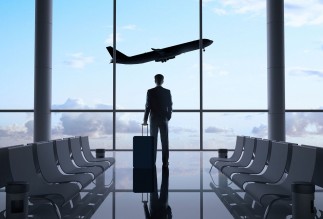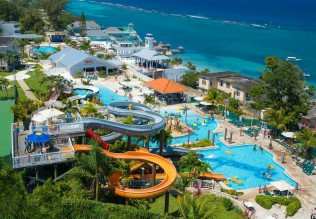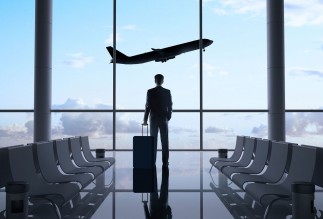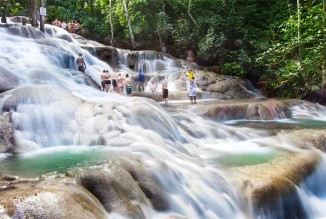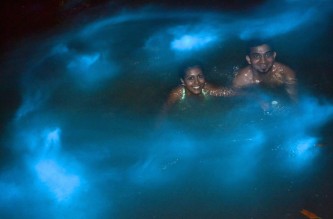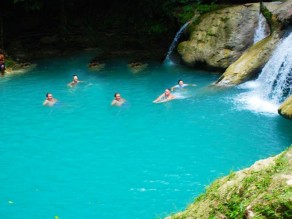 Loading... Please wait...
Loading... Please wait...- Home
- History of Jamaica
History of Jamaica
Posted on 22nd Sep 2014 @ 7:08 PM
Jamaica is the third largest island in the Caribbean Sea and was inhabited by the Arawak Indians who named the island Xamayca, or "land of wood and water".In 1494, it was discovered by Christopher Columbus who claimed it for Spain and set up a fort there.
The Arawak Indians built their villages all over the island but most of them settled on the coasts and near rivers as they fished to get food. Fish was also a major part of their diet. They grew cassava, sweet potatoes, maize (corn), fruits, vegetables, cotton and tobacco. Tobacco was grown on a large scale as smoking was their most popular pastime.
They built their villages all over the island but most of them settled on the coasts and near rivers as they fished to get food. Fish was also a major part of their diet.
Fifteen years later in 1509, after their first visit to the island, the first Spanish colonists came here under the Spanish governor Juan de Esquivel. They first settled in the St. Ann’s Bay area. The first town was called New Seville or Sevilla la Nueva. On May 10, 1655, Admiral William Penn and General Robert Venables led a successful attack on Jamaica. The Spaniards surrendered to the English, freed their slaves and then fled to Cuba. It was this set of freed slaves and their descendants who became known as the Maroons.
The early period of English settlement in Jamaica, drew much attention to the buccaneers based at Port Royal. Buccaneering had begun on the islands of Tortuga and Hispaniola. They were a wild, rough and ruthless set of sea rovers. They took their loot of gold, silver and jewels to Port Royal.
Port Royal prior to this time was an insignificant town in Jamaica. Under the buccaneers’ leadership the town, within a decade and a half, grew to become known as one of the “wealthiest and wickedest city in the world”.
In October 1865, an uprising in St. Thomas, called the Morant Bay Rebellion, was led by Paul Bogle. Bogle and his men stormed the Morant Bay Courthouse while it was in session. A number of white people was killed including the custos of the parish. The rebellion was put down by the Governor, Edward John Eyre. More than 430 people were executed or shot, hundreds more flogged and 1,000 dwellings destroyed.
Education, health, and social services were greatly improved. A proper island-wide savings back system was organised. Roads, bridges and railways (railways became government owned in 1845) were built and cable communication with Europe established (1859). The island’s capital was moved from Spanish Town to Kingston (1872).
Out of these disturbances came the formation of the first labour unions and the formation of the two major political parties.
These were the Bustamante industrial Trade Union (BITU) named after the founder, Sir Alexander Bustamante. He was also the founder and leader of the Jamaica Labour Party (JLP), the political party affiliated with the BITU. Norman Manley was the founder of the National Workers’ union and the political party the People’s National Party (PNP).
Both Sir Alexander Bustamante and Norman Manley were instrumental in Jamaica’s move towards self-government. The first general elections under Universal Adult Suffrage was held in December 1944.
In 1958, Jamaica and ten (10) other Caribbean countries formed the Federation of the West Indies. The concept of Caribbean unity was soon abandoned in 1961 when Jamaicans voted against the Federation of the West Indies.
On August 6, 1962, Jamaica was granted its independence from England. Jamaica now has its own constitution which sets out the laws by which the people are governed. The constitution provides for the freedom, equality and justice for all who dwell in the country.
The Jamaica Constitution 1962 is the most fundamental legal document in the country, guaranteeing the freedom, rights and privileges of every Jamaican citizen. The Constitution reflects the country’s independence as a nation state and, to this day, remains the cornerstone of the island’s legal systems and institutions.
The Constitution took effect on August 6, 1962 when Jamaica gained political independence from Britain, after more than 300 years of British colonial rule.

